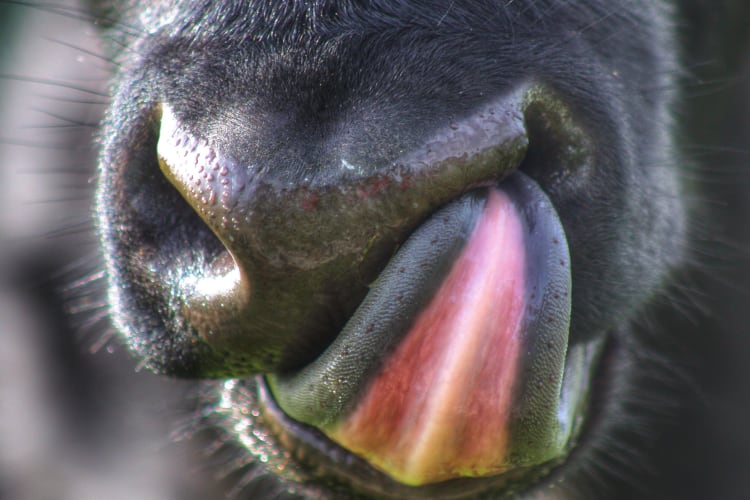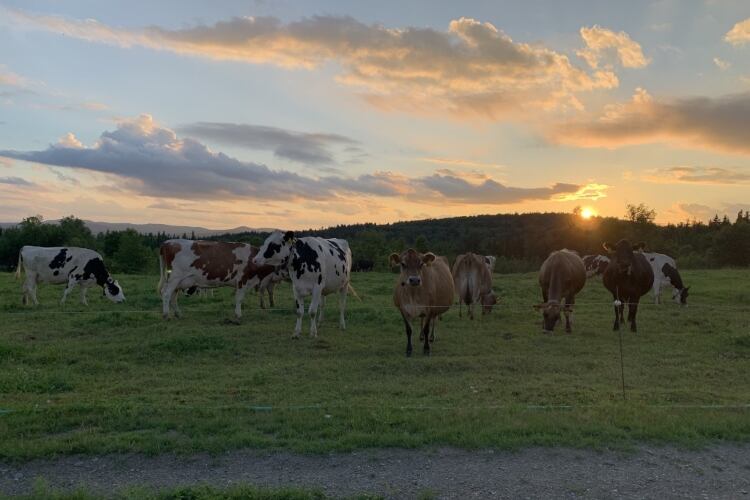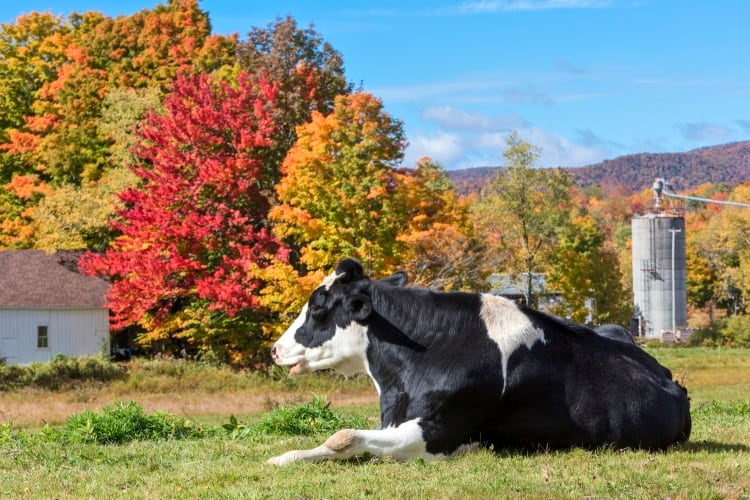Lactalis-owned Stonyfield Organic wants to help deliver a stable future for organic dairy in the US, which is being squeezed between higher production costs than conventional dairy and depressed selling prices linked to an imbalance between supply and demand.
The industry is marked by consolidation. USDA data shows the US has lost half of its dairy operations since 2003 and Stonyfield says this has hit small-scale family-owned operations hit hardest, 'from the tiny family farms in New England to multigenerational dairies in Wisconsin’.
According to the organic dairy brand, ‘many things are to blame’: exorbitant land prices, recessions, and a rise in large, agri-business operations. Not to mention, a decline in the number of young or new farmers seeing a career in farming as a viable future. The average age of dairy farmers is often approaching, or exceeding, 60 years, the business noted.
Recent figures from the USDA’s Agricultural Marketing Service also show depressed demand. In April, US sales of organic milk were down 3.4% year-on-year, with the biggest decline seen in flavored milk, which declined 9.4%.
“We are facing a uniquely challenging moment for organic dairy farmers in the northeast, where the cost of production is at an all-time high and pressure on farms is further intensified through the lack of local processing in New England and the growth of large organic dairy farms in the west leading to an oversupply of organic milk,” Stonyfield Farmer Relationship Manager Jason Johnson reflected.
To combat these trends, Stonyfield has launched a new initiative, dubbed ‘Save Gen F’, as part of what the company describes as its ‘mission’ to strengthen the next generation of farmers. The brand is working alongside farming program the Wolfe’s Neck Centre, which provides education and training for new farmers and helps commercial farmers transition from conventional to organic. The maker of YoBaby, Kids Tubes and organic Greek yogurt also announced it will donate US$100,000 to the Northeast Organic Family Farm Partnership, an initiative the dairy processor helped launch to ‘save organic family farmers’ who are ‘at risk of losing their business and livelihood’.
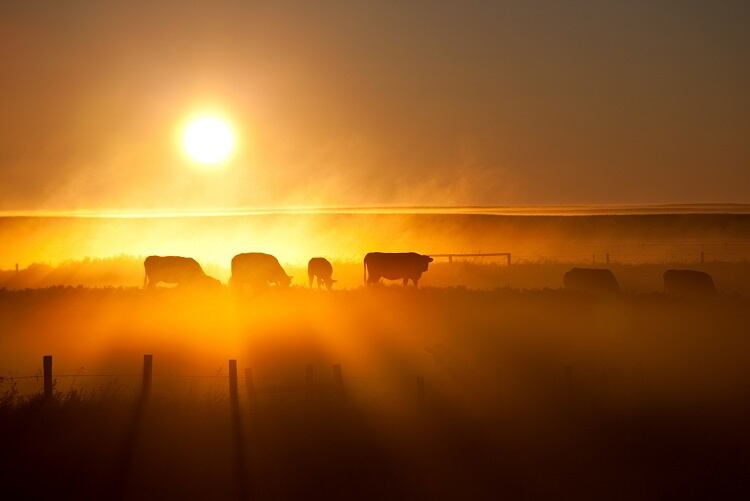
Lowering barriers to entry for new dairy farmers
The difficult economic situation for US dairy is adding to the ‘significant barriers’ facing the next generation of organic dairy farmers in the country. Nevertheless, Johnson observed that despite challenges around profitability, there is ‘substantial interest’ from young people who are considering a career in dairy farming.
“I don’t believe dairy is failing to attract the next generation. I think there is substantial interest, but there are also significant barriers to entering a career in farming, and specifically dairy farming. While it’s true that many of existing farm families may not have a biological next generation to take over the farm, there is interest from a new generation of young farmers to enter the dairy industry,” he observed.
“I think there is power and passion in being your own boss, making change for yourself and your community. We always hear it is not just a job, it is a lifestyle. When you buy or start a dairy farm – more times than not you are buying a home, several hundred acres of land and the ability to get up each day and be your own boss. Farmers in our supply are motivated to be stewards of the land on which they farm, many of whom have inherited a legacy of generational investment into the land that they hope to pass on in the future. It’s a source of great pride for the farms to produce delicious, nutritious, organic food for the community in a way that supports healthy landscapes, animals, and ultimately, people.”
However, it may be even more difficult for a non-farming generation to acquire the capital, equity, and skills outside of a farm family to be able to start in the sector. “The sheer capital to start a farm is what many times creates a non-starter, and in a biological farm family unit, many times that is gifted to the next generation or at least discounted with ‘sweat equity’ from that next generation,” Johnson said pointing to a national survey from the National Young Farmers Coalition that showed land access was the biggest barrier preventing aspiring farmers from starting their own farm business. “The competition for land values between development and agriculture is what often times drives the capital investment too high. Solutions like land trusts and improved lending options from the USDA can aid in this dilemma,” Johnson noted.
Diversity and inclusivity: 'We know we have a long way to go'
Issues hindering inclusion in US agriculture aren’t just generational. Johnson told us that there is a ‘long and well-documented history of racial discrimination against black farmers’ when it comes to access to finance and land. “We know that many, if not most, dairy farms are passed from one generation to the next, so this systemic exclusion of black farmers from land ownership gets reinforced by this generational transfer of land. Today there is a big economic barrier for farmers of any race who are looking to get into dairy if they were not raised on a dairy,” the farmer relationship expert stressed.
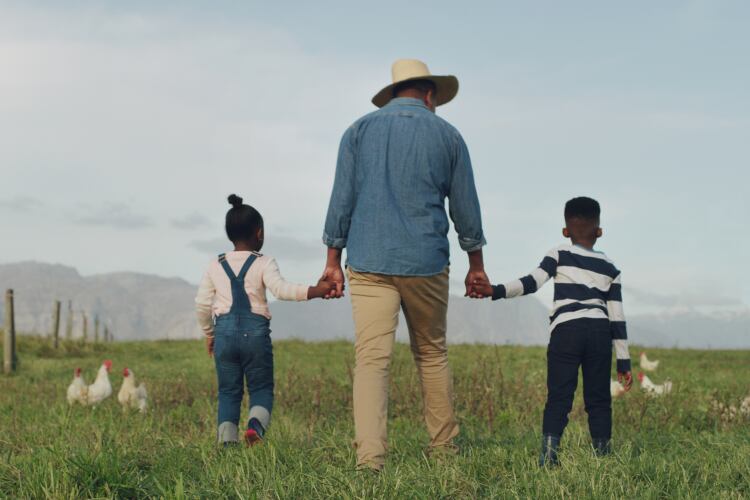
Looking at Stonyfield’s own supply chain, a racial and gender bias is evident – reflecting the dynamics of dairy production in the Northeast. “When we look at our direct supply of 34 farms – we have two women-only owned operations and about 15 (about half our supply) that are co-owned and manged by women. There are very few organic dairies in the Northeast that are owned or managed by BIPOC [Black, Indigenous, and People of Color] farmers. Through organizations like the Organic Trade Association and OpenTEAM, we’re looking at what more we can do to help build a more equitable and inclusive community in organic agriculture, and we know we have a long way to go.”
An innovative future for dairy
Johnson believes Stonyfield’s own operations stand as evidence against dairy’s reputation as a somewhat traditional sector, with innovation in ag tech disrupting dairy production.
“Within the industry, there is no question we have entered a generation of big ag tech and innovation. Within our direct supply, we have five robots operating and many producers that operate functions and everyday business decisions on their phones, tablets, and business computer – from the tractor to the milkhouse. A group of farms in our direct supply participate in the OpenTEAM community, which provides tech tools for collecting data and decision making related to soil health and reducing greenhouse gas emissions,” we were told.
“I don’t think that a lack of technological advancement is detracting from the next generation. The barriers are more heavy capital investment, long hours, and the risk associated with agriculture that many forget. Farmers depend on the weather and biological systems, which are inherently risky. I do think there is a disconnect with the general consumer as to how advanced ag and food production has become, but this is not necessarily keeping the next generation out.”
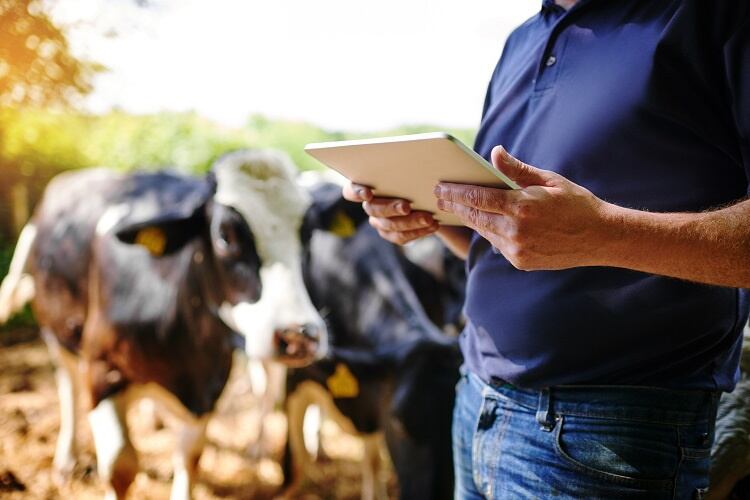
‘It is critical we take action’
If the biggest barriers to entry are the structural supply and demand issues in the US dairy market alongside the capital and risk relating to a life in agriculture, how can these be overcome?
“One of the greatest barriers currently is [low] market demand, and the risk associated with any agricultural venture. Certainly, the capital investment is also a huge roadblock for many. Stonyfield has helped to expand the market… But we also have helped to match young or new farmers that wanted to enter the market with an exiting farmer.
“Where necessary Stonyfield has offered longer contracts to provide stability for lending institutions to loan to riskier first-generation farmers. More recently, we have supported the launch of the Northeast Organic Family Farm Partnership, which aims to increase consumer and retail demand for products from organic, family farms in the northeast to create a market environment where demand is strong for these local products, making entering the profession a less risky decision for a new generation,” Johnson responded.
“Given the data showing the average age of farmers continues to rise, it is critical that we take action. There has to be the next generation to take over, which requires addressing issues facing both entering and exiting farmers; it must be an economically viable choice for exiting farmers to sell or lease their land to beginning farmers. Yes, efficiencies and productivity will continue to increase milk production even as some farms go out of business, but we need to preserve our remaining family farms some many reasons – a steady supply of nutritious, organic milk, protecting open agricultural land that delivers multiple ecosystems services that benefits everyone, a connection to our food systems…, the list goes on and on.”

